Contents
What Is Type 2 Diabetes?
Type 2 diabetes is a condition wherein the body is not able to process the glucose formed by the food you eat. The time you eat something, it is broken down into sugar molecules called glucose. Then the glucose flows to the cells through bloodstreams where it is absorbed by the cells to produce energy for the body. But all this happens in a normal body. And when this very function is not held properly, signs of type 2 diabetes start to get noticed.
In a body with type 2 diabetes, the function of processing of the glucose produced is affected. It so happens that either the body is unable to produce enough insulin or the body is unable to utilize the insulin being produced in a proper way. As a result, the glucose remains in the blood, and the blood sugar level of the body keeps on rising.
Out of all diabetics, 90% of them have type 2 diabetes. Apart from this, there are two other main types of diabetes:
Early Signs of Type 2 Diabetes
The disease is a slow poison. In most cases, the patient is actually unaware that he/she has been affected. The reason is that in the initial stages the signs of type 2 diabetes are not that noticeable for the person to detect something wrong. And by the time, it comes to the surface level, your health is affected badly.
A study says that out of every 4 sufferings from type 2 diabetes, 1 doesn’t know that he/she has it.
Frequent Urination

This is one of the most noticeable signs of type 2 diabetes. You urge to pee again and again because your kidneys are struggling to flush out that extra sugar from your blood.
It becomes very tough to control when your bladder gets full. Some of them might face an embarrassing situation. But he/she cant’ help. The body is just not allowing them.
Also, going to the washroom again and again during the night can be very irritating and disturbing. Frequent urination disrupts your sleep at night, causing hindrance in the 7-8 hours of sound sleep, needed by the body.
Excessive Thirst

It’s but natural that if your body is constantly flushing out the water to get rid of that extra sugar, you will feel thirstier all the time. In case, your body is running through excess lack of fluid, it might do under dehydration. Make sure you drink as much water as you can.
Increased Hunger

This sign of type 2 diabetes is the reason for the non-absorption of glucose by the cells. You are taking your normal meals in time. Yet, you have started feeling more and more hungry.
Why? Because what you are eating is being converted into glucose, but the body cells do not absorb it because of a lack of insulin. You do not get energy and so you feel like eating more.
Dry Mouth

In diabetes, kidneys trying to get rid of extra glucose extract fluid from tissues all through the body, including the mouth. Due to this, your mouth loses moisture and feels drained out all the time. This is one of the reasons why you need to or feel the need to drink water so frequently.
Unexpected Weight Loss

What an irony? One of the signs of type 2 diabetes mentioned above is “increased hunger”. As a result, the patient should have gained extra weight instead.
Right? But the opposite happens. He/she tends to lose. This happens because, in the mission to drive out the extra sugar, the body unintentionally loses a good amount of calories also. This might happen even if you are taking your usual meals.
Another reason for weight loss could be the use of stored fats to produce energy. Yes, usually the energy is produced from carbs we intake. Those carbs are turned into glucose that acts as a fuel for energy. But since in type 2 diabetes the phenomenon does not take place, the body uses the protein and fat present in your muscles for energy.
Fatigue
Of course, when your body is unable to process the food to gain energy, it is going to feel restless and tired. Urinating excessively and dehydration is also the cause of fatigue or feeling of weakness. Not able to work or lead your life as you wish to trigger your patience and you sometimes get irritated also.
Blurry Vision

When your blood sugar levels are not keeping close to normal, there are chances of fluid leaking into the lenses of the eyes. Due to the presence of the fluids, the lenses may swell, contract, or change shape, making the eyes difficult to focus.
Also, if you start insulin treatment after being diagnosed with diabetes, due to the shifting fluids, you may experience blurry vision for some days. Uncontrolled diabetes leads you to even worse conditions, namely diabetic retinopathy. This is a retinal disorder caused by diabetes.
Headaches
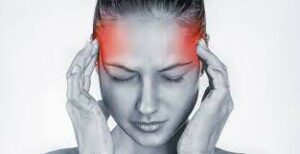
This is one of the early signs of type 2 diabetes. High blood sugar levels or hyperglycemia leads to headaches. However, keeping blood sugar levels in control will effectively help in reducing the occurrence of pain. In case, there is no relief even after diabetes management, make sure you consult your doctor.
Infections in Gums

If you have diabetes, you are more likely to get an infection in your gums. The signs of infectious gums could be red, swollen gums, and the muscles that hold your teeth can also become weak. Although this symptom is not that common, still be careful with your teeth.
Loss of Consciousness

This might be the result of hypoglycemia, that is, low blood sugar levels. When diagnosed with diabetes, as a course of treatment, you take medicines, control your diet, follow an exercise regime, or even skip meals. All these might result in low blood sugar levels causing you to faint or fall unconsciously.
Because of hypoglycemia, you might feel dizziness or confusion as well. Therefore it is advised to track your blood sugar levels. Because blood glucose levels whether too high or too low, in both conditions can hit you hard.
Tingling in Hands and Feet
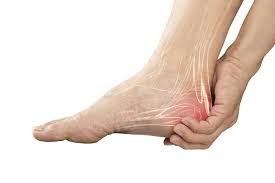
High blood sugar levels affect your nerves and blood vessels, causing tingling in the feet or hands. The condition is known as Diabetic neuropathy. Uncontrolled blood sugar places you in danger of every diabetes difficulty, including nerve damage.
The nerves in the limbs get damaged due to high blood sugar levels causing a strange sensation in the limbs.
If you notice any numbness, tingling in your feet, you should get your blood sugar level tested. If This condition persists for a longer time, it may lead to amputation.
Slow Healing Power
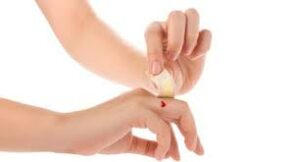
In diabetes our nerve vessels become weak so when you get even a small wound in your feet or in some other part of your body it does not heal easily. So if you have diabetes you should be careful of any cuts and sores. because one small cut can turn into a big ulcer. always wear socks around the house and don’t roam without footwear.
Frequent Infections

Diabetes causes frequent bacterial and fungal infections. Poor blood circulation also causes itching and dry skin.
Complications or Later Signs of Type 2 diabetes
Keep your blood sugar levels regulated to keep these complications of type 2 diabetes at bay:
Diabetic Ketoacidosis
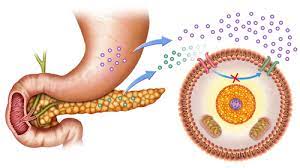
Diabetic Ketoacidosis (DKA) will happen in a short amount of time. It could happen in as little as 24 hours. It is most common in people with type 1 diabetes, who have little insulin production in their bodies. DKA may be caused by a variety of factors, including sickness, a poor diet, or not taking a sufficient dosage of insulin.
DKA will also develop in people with type 2 diabetes who contain little to no insulin. People who have type 1 diabetes, cystic fibrosis-related diabetes, pancreatectomy, and type 2 disease with improper pancreatic function are at greater risk of developing ketoacidosis.
Ketoacidosis does not occur if you are following a healthy low-carb diet, the symptoms of ketoacidosis include excessive thirst or dry throat, frequent urination, dehydration, nausea, vomiting, confusion, stomach pain, tiredness, fruity smell of the breath, and shortness of breath.
The mild symptoms of ketoacidosis can be observed at the onset of the condition. If you have vomited more than two to three times in two hours then it is important for you to seek medical help immediately. DKA is commonly caused by poor diabetes treatment.
DKA may occur when a person with diabetes misses one or more insulin doses or does not use enough insulin. A disease or infection, as well as certain medications, may prohibit the body from properly using insulin. This can result in DKA. Other triggers which might cause ketoacidosis are stress, substance or alcohol abuse, fasting, severe dehydration, and chronic diseases.
Diabetic Neuropathy
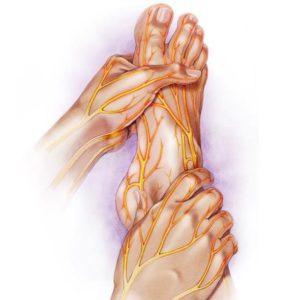
It is a type of nerve damage that happens in the body if you have diabetes. Frequent fluctuations in blood sugar levels affect the nerves adversely throughout the body.
The primary target is our feet and legs. They are relatively more prone to damage in the case of diabetic neuropathy.
It can be a complicated situation for a diabetic patient to deal with diabetic neuropathy as he already deals with ulcers, skin cracks, etc. in diabetes.
Approximately 50% of people who have diabetes inherit this problem with time. The only way to prevent yourself from diabetic neuropathy is to manage your blood sugar level and lead a healthy life. You must monitor what you eat and how much you eat.
Eye damage
Already mentioned under the early signs of type 2 diabetes, it also appears in later stages resulting even in worse conditions. Diabetes, if left untreated or unregulated can cause cataracts and glaucoma.
Skin problems
High blood sugar levels cause:
- Acanthosis nigricans
- Necrobiosis lipoidica diabeticorum
- Diabetic dermopathy
- Allergic reactions
- Diabetic blisters
- Disseminated granuloma annulare
Type 2 diabetes in Children
Mostly called adult-type diabetes, type 2 diabetes is also being seen in children. Earlier, this used to be found only in adults. The reasons can be multiple. One is because we are gaining weight quite rapidly. An epidemic named obesity has fueled type 2 diabetes. A quite few percentages of children all over the world are overweight today. Some are even obese.
Another reason can be a family history. Around 80% of those kids with diabetes will have at least a primary or second-degree relative who has diabetes as well. It is noticed that most girls in the age group of adolescents or teens come under the radar of type 2 diabetes.
The other reason can be ethnicity. African- American, Hispanic-American, and Indian-Pacific Islander, all of these tend to have a higher risk of developing type 2 diabetes.
Children born to a mother who had gestational diabetes during pregnancy are at higher risk of developing diabetes in their earlier years of life itself. Premature birth is also one of the factors responsible for type 2 diabetes.
Signs of Type 2 Diabetes in Children
Detecting type 2 diabetes in children can be very challenging because 50% of them don’t show signs and symptoms. They take a long time to start to come forth for people to recognize. Also, symptoms of diabetes in children may grow very slowly and gradually.
Children play the whole day long, and so keep feeling thirsty frequently and get tired easily. And symptoms of diabetes in children are not distinct from those noticed in adults.
But if your child is suddenly more tired and thirstier than usual, there can be early and alarming signs of diabetes. And if you detect this early, the treatment can help lower all the possible risks that might come his/her way all through his life.
A Word From MantraCare
Do you want to get rid of diabetes? Join our online diabetes consultation program and reverse your Diabetes naturally through lifestyle changes such as a Personalized Diet plan, Exercise, dieticians, and health coaches.



